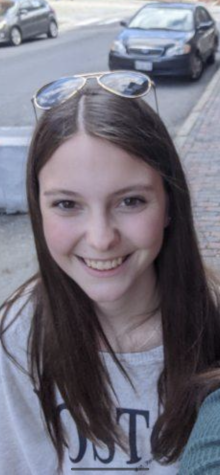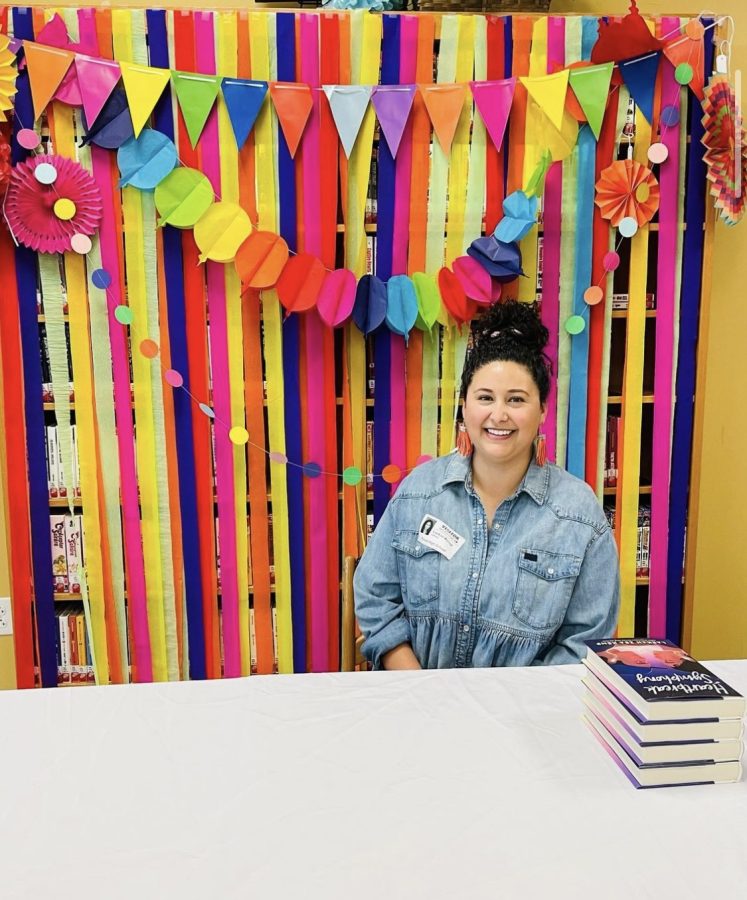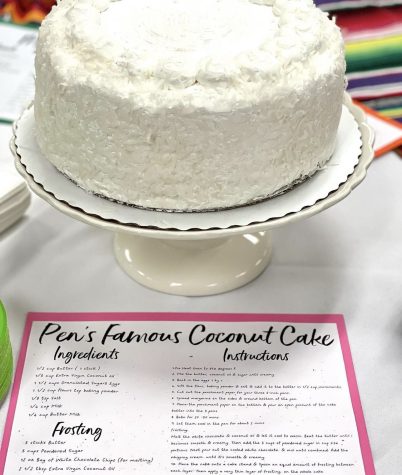Laekan Zea Kemp Q&A
Author of “Somewhere Between Bitter and Sweet” comes to visit for Q&A session
How was the story inspired?
“It’s mostly inspired by my partner who used to work in restaurants when we were in high school, and he just always had the most hilarious stories of the things they would do in the restaurant. It can be a little chaotic in the back, I mean, there’s a lot of young people working together in a high pressure environment. There’s a lot of things they would just do in their free time. That was the seed of the idea and I kind of went off of that- just the stories my partner would bring from working in the restaurant business.”
Would you say “Somewhere Between Bitter and Sweet” was your best work yet?
“You know, I don’t know. I don’t know if that’s necessarily for me as the author to judge. And I say that because each book is so different, and the process I use to write every book changes with every book. Every book requires something different, it needs something different from me, it requires me to hone certain skills that the last manuscript didn’t require me to hone in the same way. I self-published for many years before I pursued traditional publishing, and the reason I decided to use that book in particular to finally go get and agent and the traditional path is because the feedback I was getting from partners was really positive, and it was really obvious to me that the book was special and different than any of the other books that I had written. So in that way, yes, I was pretty sure it was better than the work I had done before. Comparing it now to Heartbreak Symphony and my other young adult novel, to me they’re just different. It’s not up to me to judge though, it’s up to readers.”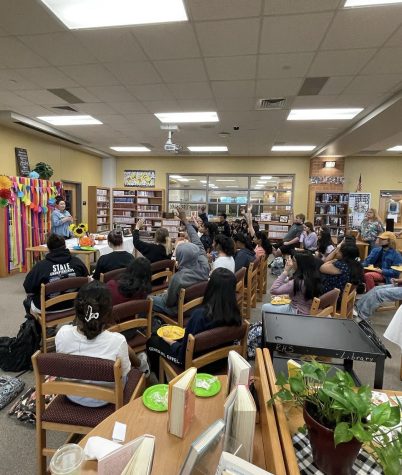
What was self-publishing like?
“It was a lot of work. You’re basically doing everything on the creative side and the production side, where traditionally a publisher does everything on the production side. Back in the early 2010’s I didn’t really see a home for my books in traditional publishing because of the types of stories that I tell. I saw all of these women in particular having a lot of success self-publishing in the young adult space, so I thought that if they were having a lot of success with that audience, maybe that’s where I can start my audience too. So that’s why I started it that way, not necessarily because it was my dream, but because that was one of the only avenues that felt accessible to me, and it was a lot of work. I had to hire my own copy editor, cover designer and pay that all out of pocket. I had to spend a lot of time conjuring up interest for potential readers. It took up even more time and energy than the actual writing did, which is one of the reasons I really wanted to transition and pass off all those responsibilities to someone else. There’s pros and cons to both, but I do get to spend a little more time focusing on the creative side now, which is what I prefer to do.”
What is your writing process?
“I’m, what I like to call, a headlight writer. I only plan or outline a few chapters ahead of me. It’s like if you’re driving a car late at night and you can only see as far out as the light from your headlights go. I really like to be surprised by my stories, and I really like the experimentation and play that comes with it. My process has changed a little bit now that I am writing under deadline. I have to be a little bit more precise with planning and timing with things because I need to b
e able to meet my deadlines. I still try to leave space, wherever I can, for that discovery- that’s my favorite part of writing. I start with some kind of concept, or interest – one that I know is going to hold my attention for seventy to eighty thousand words, multiple drafts, multiple revisions. I think of two characters after that, because I tend to write dual point-of-views, and then I just go, and I start.”
How do you shape your characters?
“When it comes to characters I usually start with what their insecurities are, what they’re afraid of and whatever false beliefs they have about themselves or the world because those are the kinds of things that I’m going to have to change by the end of the book. The characters arc – they start the book as one person and end the book as someone else, slightly or significantly different. All of us, as human beings, move through the world with a very particular lens, and usually that lens is shaped by negative, dramatic experiences – they have a huge impact on how we interact with things, what our beliefs and values are, how our inner self talks, so I start with that. It usually helps me make their decisions just thinking about how they would act with those struggles. Over the source of the story, picking those turning points -when they will face those fears or insecurities, and how I will be able to gen
tly nudge them to use those opportunities to be someone a little bit different.”
Are the characters based off of anybody?
“Most of the protagonists that I write have a piece of me in them. I usually start with a piece of my lived experience and that overlaps with my character’s lived experience. Not every aspect of my characters are based on me, or people that I know, but I find that it’s a good starting point for me because I write, first and foremost, for myself. It’s a way for me to process my emotions and experiences. Usually the goal, over the course of my writing, is to answer a question that maybe I’m grappling with in my personal life, or to figure out something that I’m struggling with. Those are things that I implant into my characters, whether they are a male to female protagonist.
“There’s also both consciously and
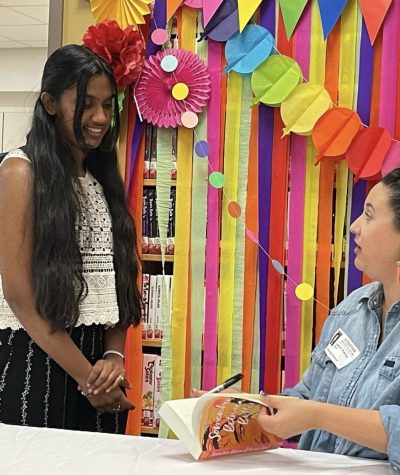
subconsciously a lot of details in my characters that are based on people that I know – friends, family members, people in my community, people that I see on TV, other characters that I’ve read in books. It’s just things that I find interesting that I think would make the characters feel more whole and more human.”
How do you stop yourself from ‘ripping off’ someone else?
“For me, it’s all about specificity and writing about things that I know other writers may not tackle in the same way. Also including details from my own life that I know would be very unlikely for other people to have the same exact details in their story. It’s not really that difficult for me as I write about chicana and tejanana characters. There’s not a lot of those characters out there. My characters will just have a different experience than a Puerto rican character or a Cuban character, and so staying in my space and writing from my experience, and the experience of my community, helps a lot to make sure that I’m not stepping on anyone else’s toes. This is also part of the reason why I don’t write about other protagonists that aren’t Mexican or Mexican-American.
“I think for any other aspiring writer that whatever aspect of their identity, whether they’re disabled or queer or whatever it happens to be, their community is really unique. It is their job as a writer to recognize those things that are really unique and shine the light on them.”
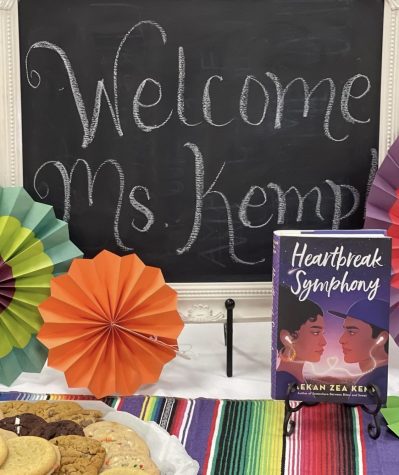
How many hours do you spend writing your books each day?
“It depends. My work day never looks the same- it’s so different from teaching, where everything is so regimented. As a teacher, you know exactly what you’re going to be doing every hour of the day. As an author, for example, I am here right now doing a school visit. When I go home this afternoon, I have to get some writing done since I’m on a deadline. Some days I’m able to get that writing done in the morning, some days I get really lucky and it rains, and I stay home and write literally all day. Some days I may get in two hours, other days it’s four, but it’s usually no more than that because my brain gets really tired, so I’ll switch to doing admin work like writing emails or making graphics for social media or answering questions for media.”
What do you do when you get writer’s block?
“Now that I am writing full time, I have the luxury of being in charge of my time. When I get writer’s block, whenever I’m able to, I usually go on a really long walk, and I’m talking, like, two and a half hours. I’ll go, put my headphones in, and even if I’m walking and concentrating on the music, singing along to the lyrics in my head, something is happening in my subconscious mind that is working out those problem that I’m struggling with, so that by a certain point in my walk or the time I make it abc to my car, I’ve figured something out. It may not be the whole problem, but enough of something that I can make a little progress. Something else that I’ll do, if I don’t feel like or am not able to go on a walk, is that I will reach for something on my shelf, and I’ll just read for about 10 to 15 minutes. That will usually help unlock something, just looking at other writers use language. Poetry for this is specifically helpful.”
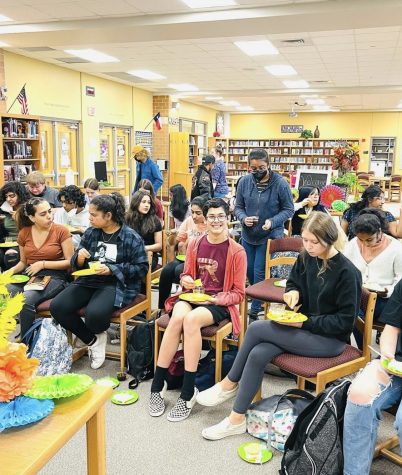 What did you learn from writing this book?
What did you learn from writing this book?
“I usually go in with an intention to tackle a specific question or problem that I’m having. Hopefully by the end, i understand it and myself a little bit better. I think that the process of taking a book from first draft to final draft has taught me to have patience. I think I’ve learned how to persevere. I’ve also learned to not just start things, but to finish things as well. If I don’t finish the book, I can’t sell it; if I can’t sell it, then I can’t eat. So, writing has taught me so much about my own mental fortitude and my own strength, and the things that I’m capable of doing when things are tough.”
How did you incorporate so many themes into one book?
“I hate to say this because I used to be an english teacher, but the themes happen by accident. I know that when students have to do something for an assignment, and write something for the theme of the book – they’re usually taught that writers know the theme going into the book and the things that they want to tackle. For me, I discover those things along the way, and then through the revision process I then make them stronger. A lot of those things happen serendipitously, but I think they happen because it’s really important for me to write characters that are like real human beings. For example, Pen is an aspiring beaker, but that is not all there is to her. She also deals with anxiety and depression, she also has a temper – she has other things going on just like we all do. I think having that approach to writing helps as a lot more of those things do come up. Then my job as a writer, through the revision, is to show you how all those things fit.”
Once you get ideas do you write them down?
“I have hundreds of notes apps on my phone with just tons of random ideas. Some of the ideas are for picture books, some for young adult novels, and some of them are just ideas focusing on different themes. What often happens is that I’ll wake up at 3 am needing to go to the bathroom, and I’ll think of a solution that I’m having and I’ll write it on my notes app. Inspiration strikes whether I’m in front of my computer screen or not, and I still try to capture that inspiration.”
As an author, when you read books do you look at them more critically now?
“I do and I don’t like it. The truth is that I think pleasure reading is a hard state of mind to get into when you are a working writer. Even this year, I have started so many books and struggled to finish them because I get distracted by so many things whether in the book that I would do differently, or thighs that are so good in the book that make me feel insecure about me as a writer. Reading has become this really complex thing for me and I’m still trying to get back to this place that I used to be. Honestly, as a teenager, when I used to wake up on a Saturday and read until nighttime, the exhilaration I got from reading was so awesome. Now, I long for that feeling again and I haven’t been able to find it, so yeah, it gets harder to enjoy reading for sure.”
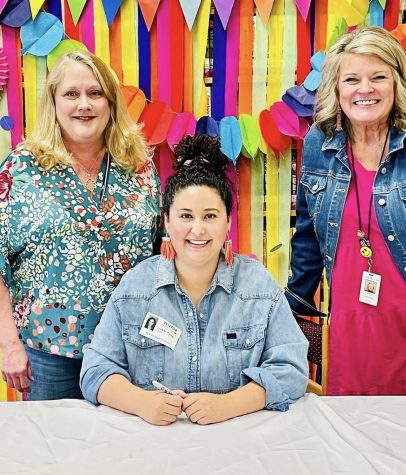 When did you first begin to call yourself a writer/author?
When did you first begin to call yourself a writer/author?
“I mentioned earlier that I wrote my first book when I was seventeen, as a senior in high school, and I really almost always took it seriously. It was one of the only things that I was ever really good at and excelled at in a way that was noticeable to other people, so I really claimed that early on and decided that this was what I was good at – it was my identity. I would say that if you write, you’re a writer and don’t be afraid to call yourself one.”


